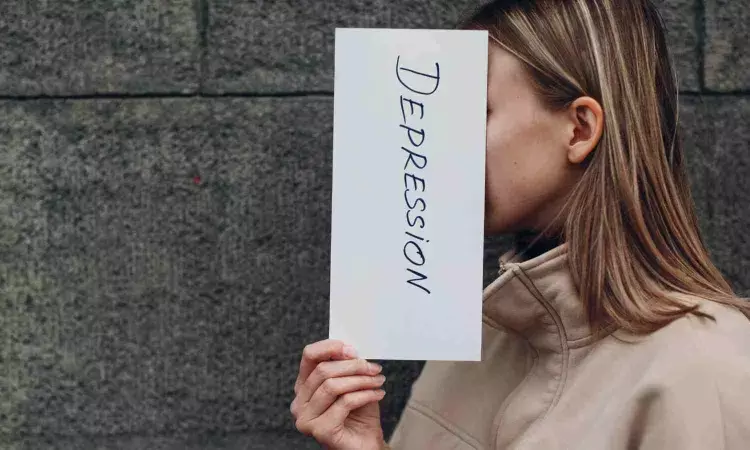- Home
- Medical news & Guidelines
- Anesthesiology
- Cardiology and CTVS
- Critical Care
- Dentistry
- Dermatology
- Diabetes and Endocrinology
- ENT
- Gastroenterology
- Medicine
- Nephrology
- Neurology
- Obstretics-Gynaecology
- Oncology
- Ophthalmology
- Orthopaedics
- Pediatrics-Neonatology
- Psychiatry
- Pulmonology
- Radiology
- Surgery
- Urology
- Laboratory Medicine
- Diet
- Nursing
- Paramedical
- Physiotherapy
- Health news
- Fact Check
- Bone Health Fact Check
- Brain Health Fact Check
- Cancer Related Fact Check
- Child Care Fact Check
- Dental and oral health fact check
- Diabetes and metabolic health fact check
- Diet and Nutrition Fact Check
- Eye and ENT Care Fact Check
- Fitness fact check
- Gut health fact check
- Heart health fact check
- Kidney health fact check
- Medical education fact check
- Men's health fact check
- Respiratory fact check
- Skin and hair care fact check
- Vaccine and Immunization fact check
- Women's health fact check
- AYUSH
- State News
- Andaman and Nicobar Islands
- Andhra Pradesh
- Arunachal Pradesh
- Assam
- Bihar
- Chandigarh
- Chattisgarh
- Dadra and Nagar Haveli
- Daman and Diu
- Delhi
- Goa
- Gujarat
- Haryana
- Himachal Pradesh
- Jammu & Kashmir
- Jharkhand
- Karnataka
- Kerala
- Ladakh
- Lakshadweep
- Madhya Pradesh
- Maharashtra
- Manipur
- Meghalaya
- Mizoram
- Nagaland
- Odisha
- Puducherry
- Punjab
- Rajasthan
- Sikkim
- Tamil Nadu
- Telangana
- Tripura
- Uttar Pradesh
- Uttrakhand
- West Bengal
- Medical Education
- Industry
Remote video consultations linked to reduced depression and anxiety, reports BMJ study

Remote video consultations between patients and mental health specialists show a small but significant improvement on symptoms of depression and anxiety, finds a trial published by The BMJ today.
Although the effect size is small, the researchers say the effect is still meaningful given the high levels of these disorders in the community.
Globally, depression and anxiety disorders are among the top leading causes of years lived with disability, but most people with depression and anxiety are treated in primary care and don’t have access to specialised mental health care.
Previous studies have shown that telemedicine in primary care settings can be effective, but evidence is scarce for remote consultations between patients in primary care settings and offsite mental health specialists.
To explore this further, researchers in Germany investigated the effectiveness of a new mental health video consultation model (PROVIDE) for treating people with symptoms of depression and anxiety in primary care settings.
Their findings are based on 376 adults (average age 45 years; 63% women) who visited their general practitioner (GP) with at least moderately severe depression or anxiety, or both, between 24 March 2020 and 23 November 2021.
Severity of symptoms was measured using the patient health questionnaire anxiety and depression scale (PHQ-ADS) and participants were randomly assigned to receive the PROVIDE model or usual care.
The PROVIDE model comprised five 50-minute real-time video sessions featuring brief psychotherapy over eight weeks between the patient at the primary care practice and a mental health specialist at an offsite location. Usual care was provided by a GP and included brief counselling, medication, and referral to specialists.
Compared with usual care, the PROVIDE intervention led to small improvements in the severity of depressive and anxiety symptoms (average 2.4 point reduction on the PHQ-ADS score) at six months, and effects were sustained at 12 months (average 2.9 point reduction).
The PROVIDE model was also more effective in reducing psychological distress related to physical (somatic) symptoms, at both six and 12 months, but did not seem to offer any additional benefit for recovery.
No serious adverse events were reported in either group.
The researchers point to several limitations, such as the difficulties of meeting a fully representative and unbiased sample in practice based clinical research and the potential impact of missing data.
And although the effect size is small (below the average minimal clinically important difference of 3-5 points on the PHQ-ADS score), they argue that the improvement is still meaningful “given the high prevalence of depression and anxiety in community settings.”
While further research is needed to help tailor interventions more effectively and maximise their public health impacts, they conclude: “The PROVIDE model shows promise as a scalable intervention that can collectively benefit population health in terms of depression and anxiety disorders.”
Reference:
Haun M W, Tönnies J, Hartmann M, Wildenauer A, Wensing M, Szecsenyi J et al. Model of integrated mental health video consultations for people with depression or anxiety in primary care (PROVIDE-C): assessor masked, multicentre, randomised controlled trial BMJ 2024; 386 :e079921 doi:10.1136/bmj-2024-079921
Dr Kamal Kant Kohli-MBBS, DTCD- a chest specialist with more than 30 years of practice and a flair for writing clinical articles, Dr Kamal Kant Kohli joined Medical Dialogues as a Chief Editor of Medical News. Besides writing articles, as an editor, he proofreads and verifies all the medical content published on Medical Dialogues including those coming from journals, studies,medical conferences,guidelines etc. Email: drkohli@medicaldialogues.in. Contact no. 011-43720751


